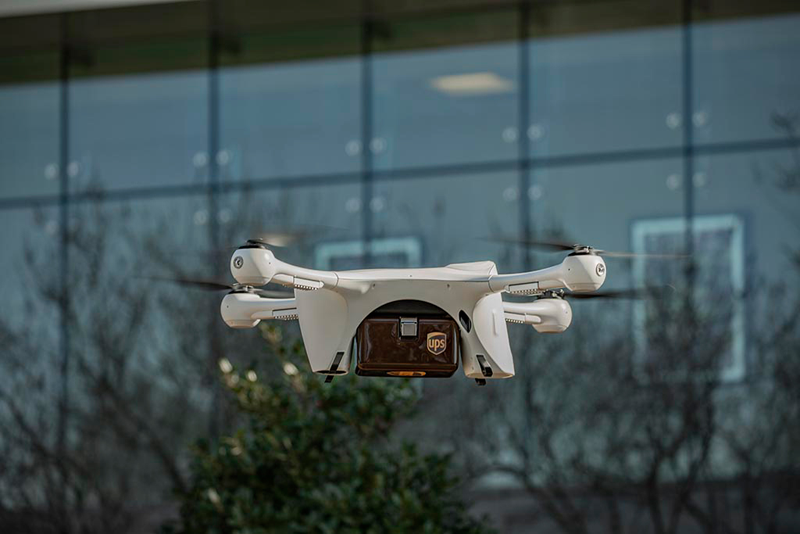UPS announced in October that it had achieved the highest level of FAA certification for drone deliveries, the FAA’s Part 135 Standard certification.
It might sound like government word salad, but UPS and drone partner Matternet have been awarded a landmark license to operate drones for the very first time. This new certification gives UPS a huge amount of leeway when it comes to aerial drone operations.
The FAA’s Part 135 Standard certification has no limits on the size or scope of operations. It is the highest level of certification, one that no other company has attained. UPS Flight Forward’s certificate permits the company to fly an unlimited number of drones with an unlimited number of remote operators in command. This enables UPS to scale its operations to meet customer demand. Part 135 Standard also permits the drone and cargo to exceed 55 pounds and fly at night, sidestepping previous restrictions governing earlier UPS flights.
This is big news in the delivery mobility space and tells all of us drone delivery nerds a few things. First, that the FAA may be more open to drone operations than was suggested by the somewhat arduous drone rules that first emerged. Secondly, there are clearly models of operating and devices that can work through those rules.
None of this is taken lightly, as a FAA representative told Food On Demand.
“They have to show a certain level of reliability for the aircraft, basically the idea is that they demonstrate no more risk than normal cargo airplanes flying overhead,” said the representative. “Reliability tests on their drivetrain, parachutes and stuff like that are all required, so they have to do quite a bit.”
Under the partnership, UPS and Matternet will ferry medical supplies including samples, blood and other “biologics” between labs and the central WakeMed hospital. The hospital, based in Raleigh, North Carolina, will serve as the next test for the operational model as UPS figures out real-world drone operations.
“UPS Flight Forward is benefitting from our knowledge as one of the world’s leading airlines. The Flight Forward organization is building a full-scale drone operation based on the rigorous reliability, safety and control requirements of the FAA,” said UPS CEO David Abney.
Still, there are some limitations. While drones can fly directly over people, there is a flight path that “minimizes” the likelihood that these drones can fly over people. And while the certification approves weights above 55 pounds, the real-world weight will be much less than that. The Matternet M2 quadracopter is designed to carry up to 2 kilograms and 4 liters.
It’s a major landmark, but the FAA representative who spoke with Food On Demand stressed that operating wherever, whenever is still “a ways off.”
Read more details on the program at Supply Chain 24-7.


